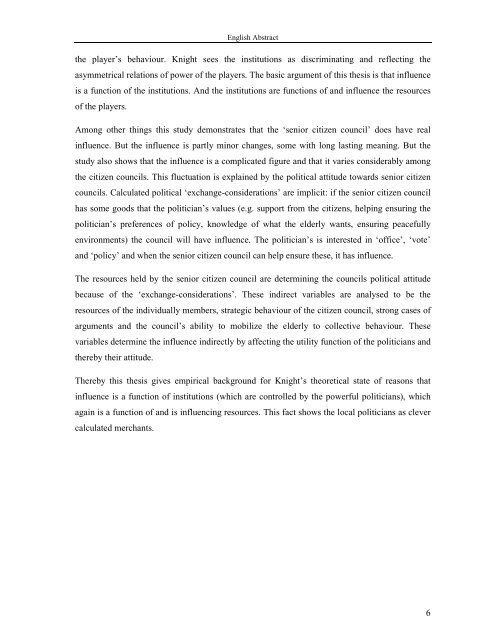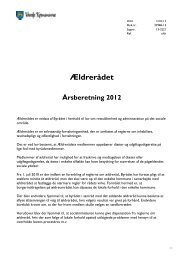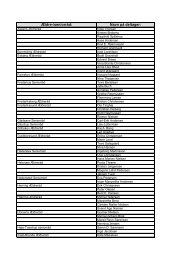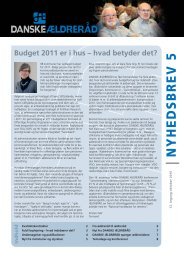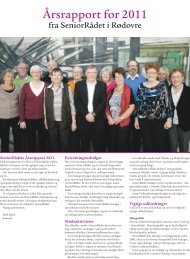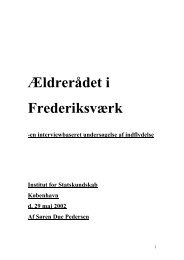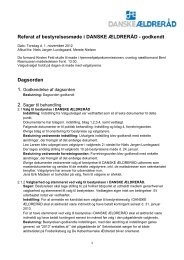Kløgtigt Købmandskab eller kølig kommunalpolitik - Danske Ældreråd
Kløgtigt Købmandskab eller kølig kommunalpolitik - Danske Ældreråd
Kløgtigt Købmandskab eller kølig kommunalpolitik - Danske Ældreråd
You also want an ePaper? Increase the reach of your titles
YUMPU automatically turns print PDFs into web optimized ePapers that Google loves.
English Abstract<br />
the player’s behaviour. Knight sees the institutions as discriminating and reflecting the<br />
asymmetrical relations of power of the players. The basic argument of this thesis is that influence<br />
is a function of the institutions. And the institutions are functions of and influence the resources<br />
of the players.<br />
Among other things this study demonstrates that the ‘senior citizen council’ does have real<br />
influence. But the influence is partly minor changes, some with long lasting meaning. But the<br />
study also shows that the influence is a complicated figure and that it varies considerably among<br />
the citizen councils. This fluctuation is explained by the political attitude towards senior citizen<br />
councils. Calculated political ‘exchange-considerations’ are implicit: if the senior citizen council<br />
has some goods that the politician’s values (e.g. support from the citizens, helping ensuring the<br />
politician’s preferences of policy, knowledge of what the elderly wants, ensuring peacefully<br />
environments) the council will have influence. The politician’s is interested in ‘office’, ‘vote’<br />
and ‘policy’ and when the senior citizen council can help ensure these, it has influence.<br />
The resources held by the senior citizen council are determining the councils political attitude<br />
because of the ‘exchange-considerations’. These indirect variables are analysed to be the<br />
resources of the individually members, strategic behaviour of the citizen council, strong cases of<br />
arguments and the council’s ability to mobilize the elderly to collective behaviour. These<br />
variables determine the influence indirectly by affecting the utility function of the politicians and<br />
thereby their attitude.<br />
Thereby this thesis gives empirical background for Knight’s theoretical state of reasons that<br />
influence is a function of institutions (which are controlled by the powerful politicians), which<br />
again is a function of and is influencing resources. This fact shows the local politicians as clever<br />
calculated merchants.<br />
6


